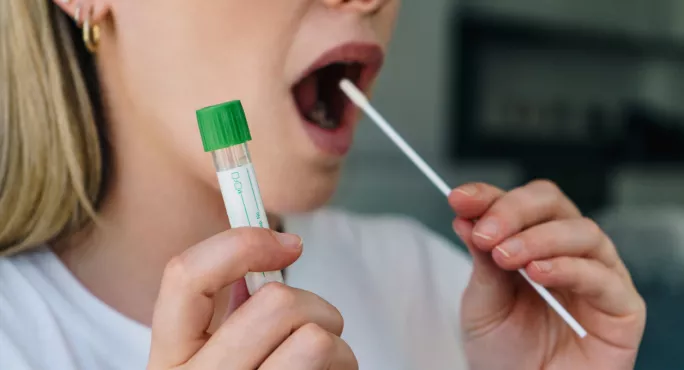Three-quarters of teachers do not think children should be expected to attend school if there is a Covid case in their household, according to a new poll.
Data collected from Teacher Tapp suggests a significant proportion of school staff have concerns about the way the government has asked schools to manage coronavirus cases this term.
Changes to rules on self-isolation this term mean that children are still expected to attend lessons if someone else in their household has tested positive for Covid.
Long Covid: Third of school staff who caught virus had ongoing symptoms
Disruption: More than 100,000 pupils off school with Covid or a suspected case
Exclusive: Optional test to replace isolation ‘risks virus spread’
The changes also mean that children who are identified as a close contact of a Covid case in the classroom are not expected to self-isolate.
Previously, pupils identified as close contacts of a Covid case in school would have been sent home. However, from this term any close contacts under the age of 18 or double vaccinated are asked - but not required - to take a PCR test rather than isolate.
Teachers’ concerns over Covid safety rules in schools
Schools are also no longer required to operate in bubbles, which - up to this term - had been used by schools to identify the close contacts of a Covid case.
Teacher Tapp asked questions to guage school staff’s opinion on these changes, for Tes.
Teachers were asked if they agreed that a child should be expected to go to school if their parents or siblings have Covid.
Three-quarters of respondents (75 per cent) disagreed with this and just 14 per cent agreed.
Teachers were also asked if they agreed that close Covid contacts should not have to self-isolate and should be able to stay in class.
Around a third agreed with this and just over 50 per cent disagreed.
The findings are based on responses from 6,414 teachers.
A breakdown of the results shows that 2 per cent of respondents strongly agreed that pupils should be expected to attend school in the event of a Covid case at home, and another 12 per cent agreed.
But 40 per cent disagreed and 35 per cent strongly disagreed, with another 10 per cent saying that they didn’t know.
The responses also show slightly more opposition to the rules among primary school staff, with 77 per cent saying they disagreed compared with 73 per cent in secondary schools.
On the question of whether contacts of Covid cases in school should not have to isolate, 6 per cent of respondents strongly agreed, 27 per cent agreed while 31 per cent disagreed and 20 per cent strongly disagreed.
The responses show a noticeable difference between classroom teachers and headteachers on this question.
Almost half of headteachers agreed that Covid contacts should not have to self-isolate (46 per cent) compared with less than a third of classroom teachers (29 per cent).
A Department for Education spokesperson said: “The best place for children and young people to be is in school with their teachers and friends. The measures in place day-to-day in schools strike a balance between managing transmission risk - with the offer of the vaccine and regular testing for older students, enhanced ventilation and isolation of positive cases - and reducing disruption to children’s education experiences.”
The department also said that high and rising vaccine rates and strong vaccine efficacy, alongside the restrictions in place, have reduced the scale of the pandemic significantly since the start of 2021.




